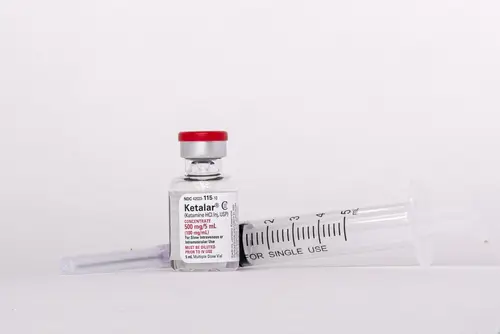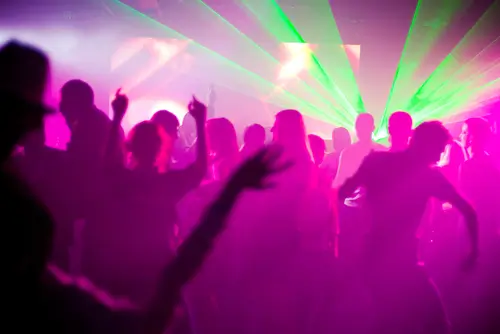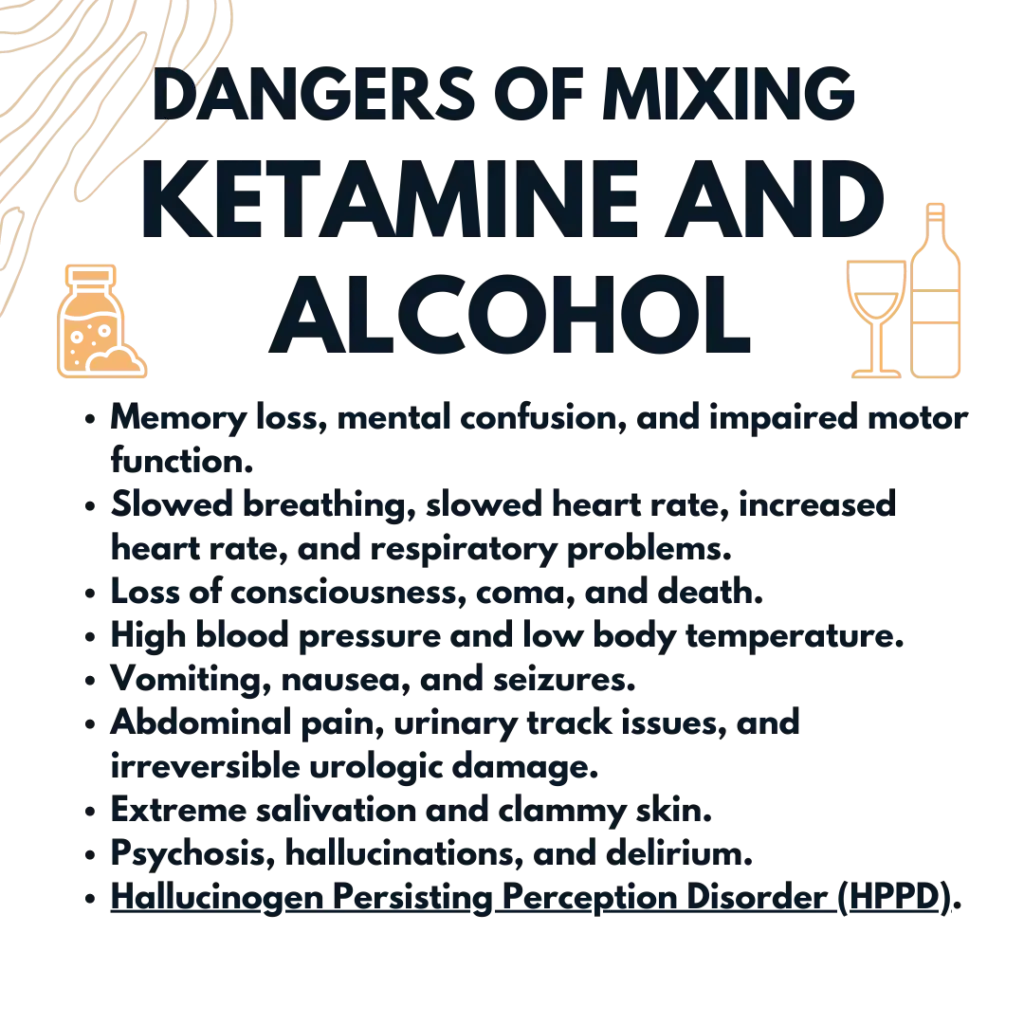Ketamine and alcohol are both powerful and dangerous substances. When taken together or after another, their simultaneous effects can be life-changing and potentially fatal. You might wonder why anyone would take these substances together if their consequences outweigh the pleasurable but temporary effects.
This short blog dives into how ketamine and alcohol interact when taken together, including symptoms, side effects, and treatment options for co-occurring substance use disorders.

What is Ketamine?
Ketamine is a dissociative anesthetic agent used during medical procedures and acute and chronic pain treatment. However, it gained recent popularity with headlines and social media dubbing it as a horse tranquilizer. It’s been used by doctors, surgeons, and veterinarians since 1960 for pain relief and anesthesia but has been expanded beyond its original use and can be prescribed as an antidepressant for individuals who aren’t responding to typical forms of treatment, otherwise known as ketamine-assisted psychotherapy (KAP).
In medical and pharmaceutical uses, ketamine is an injectable solution and was the first psychedelic substance approved by the FDA in 2019. However, when it’s illegally produced and used, it’s usually converted to a powder, cut into lines to smoke or snort, or in a liquid form injected or mixed with alcohol. It’s also been commonly mixed with tobacco, cannabis, meth, amphetamines, MDMA, and cocaine.
How to spot ketamine: In liquid form, ketamine is clear. However, it’s usually packaged in a powder form, appearing white or off-white. Ketamine also goes by “K, Special K, Kit-Kat, Vitamin K, and Super Acid.
Read more about ketamine: Ketamine Addiction & The Brain: What You Should Know
How Does Ketamine Work?
Ketamine affects the brain by blocking a special protein called the N-methyl-D-aspartate (NMDA) receptor. Normally, this receptor is activated by a brain chemical called glutamate, which helps with learning and memory. By blocking the NMDA receptor, ketamine can influence attention, learning, and memory.
When someone takes ketamine, the effects can kick in within a few minutes, depending on how it’s taken. They might experience changes in sight or sound and feel disconnected from reality. Some users may also feel detached from their own body, often referred to as being in the “k-hole.” Hallucinations are common during the drug’s effects and can last up to an hour, ranging from mild to severe depending on how much was taken and the individual’s brain chemistry.

Environments With Ketamine And Alcohol
Ketamine, and other party or club drugs, are usually found in bars, nightclubs, and music festivals. Partygoers may not even attend an event with the intention of using ketamine, which is where alcohol comes in. Once someone has a few drinks at a bar or party, their inhibitions are lowered, and the drive to keep the party going can introduce ketamine and other drugs. Ketamine has also been used to physically and sexually assault individuals due to its sedative and amnesia-like effects.
Cocaine is widely used in bar and club settings, usually in a powder form taken in “bumps.” If someone is led to a restroom or side room to use illicit drugs, they can be caught off guard by the off-white coloring of the powder. At the moment, curiosity and the effects of alcohol can lead to consuming an unknown and dangerous substance.

What Happens If You Mix Ketamine And Alcohol?
The effects of alcohol combined with ketamine can cause unpredictable and amplified consequences. Some studies found that ketamine produces alcohol-like effects, which can make it easy for individuals to consume too much and quickly become intoxicated. Some users can even experience flashbacks to these symptoms. Combining ketamine with alcohol increases the risk of the following symptoms:
- Memory loss, mental confusion, and impaired motor function
- Slowed breathing, slowed heart rate, increased heart rate, and respiratory problems
- Loss of consciousness, coma, and death
- High blood pressure and low body temperature
- Vomiting, nausea, and seizures
- Abdominal pain, urinary track issues, and irreversible urologic damage
- Extreme salivation and clammy skin
- Psychosis, hallucinations, and delirium
- Hallucinogen Persisting Perception Disorder (HPPD)
Read more: Alcohol And Shrooms: Effects, Interactions, & Risks

Treatment Options For Co-Occurring Ketamine And Alcohol Use Disorders
Addressing abuse and addiction to ketamine and alcohol requires a comprehensive approach that considers both substances simultaneously. This approach works not only for multiple substance abuse but also for mental health disorders. Focusing on one substance or condition at a time can be counterproductive, as their combined effects can contribute to and worsen each other.
If you’re looking into addiction treatment for multiple substances (polysubstance abuse), find a rehab center that offers dual-diagnosis treatment. These programs usually offer typical therapeutic modalities like cognitive behavioral or dialectical behavior therapy to address behaviors, combined with emotion and trauma-focused therapy methods to address triggers, traumatic memories, and mental health. Fortunately, dual diagnosis treatment is incorporated into various program schedules.
- PHP: Partial hospitalization programs are a step down from staying overnight at a residential treatment center. Clients attend addiction treatment for 30 to 40 hours a week, similar to a full-time job. This allows individuals to receive the highest level of care and structure without impacting their personal or home responsibilities.
- IOP: Intensive outpatient programs are another step below PHP, with clients attending treatment for around 20 to 25 hours a week. You’ll still receive the same level of quality addiction treatment, but it’s easier to manage employment or school in this structure.

Contact Launch Centers
If you or someone you know is struggling with ketamine and alcohol abuse, contact Launch Centers in Los Angeles. Our addiction treatment center was designed to address various substances and mental health disorders, including alcohol and hallucinogen use disorders (ketamine). Clients can choose from one of our addiction programs based on their needs, goals, and schedule. We also provide life skills and career development training to help young adults leave substances behind and put their well-being and success forward.





